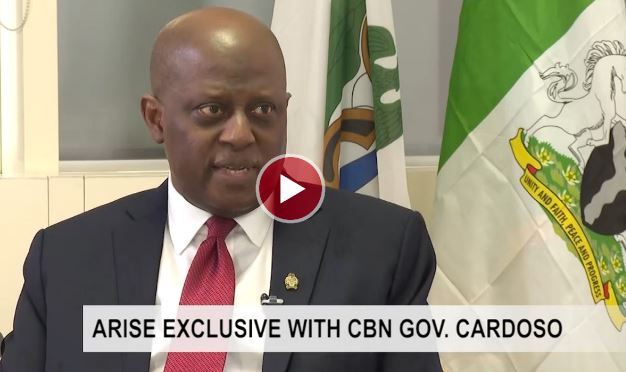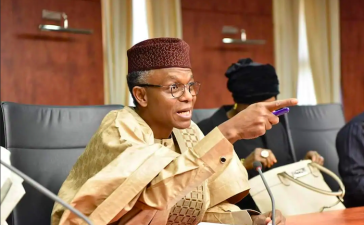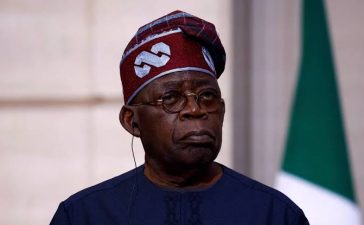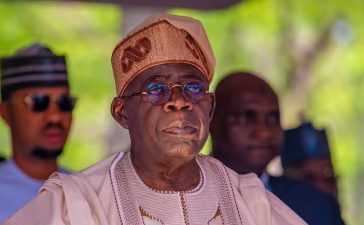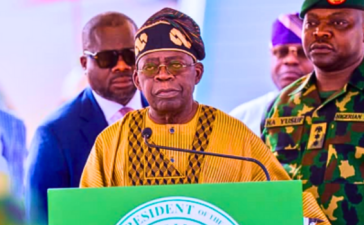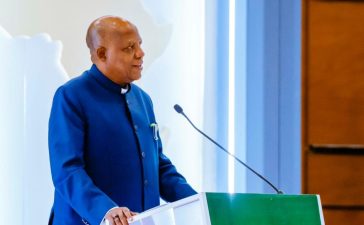The Central Bank of Nigeria (CBN) Governor Yemi Cardoso has provided insights into the ongoing investigations into the $7 billion foreign exchange (FX) obligations, shedding light on irregularities and infractions discovered during a forensic audit conducted by Deloitte Management Consultant.
During a televised appearance on Arise TV, the CBN Governor explained that the central bank took a proactive step by engaging Deloitte to conduct a thorough forensic examination of the FX obligations to distinguish valid transactions from questionable ones. The objective was to ensure transparency and accountability in addressing the outstanding obligations.
“We had had reasons to believe we needed to take a harder look at these obligations. So we contracted Deloitte management consultants to do a forensics of all these obligations and to actually tell us what was valid and what was not.”
The results of the forensic audit were described by the Governor as “startling” due to the extent of irregularities uncovered. Out of the total $7 billion in FX obligations, approximately $2.4 billion were flagged with various issues that raised concerns.
“We discovered that of the roughly $7 billion, about $2.4 billion had issues, which we believe had no business being there and the infractions on that ranged from so many things, for example not having valid import documents and in some cases entities that do not exist,” he said.
The identified infractions encompassed a wide range of discrepancies, including the absence of valid import documents, instances of entities that did not exist, and discrepancies in the allocation of FX to beneficiaries and account parties.
Among the alarming findings were cases where entities received FX allocations without proper documentation or request, while others received amounts surpassing their initial requests. The Governor emphasized that these discrepancies amounted to $2.4 billion, signifying a significant portion of the headline figure.
The infractions discovered during the forensic audit were diverse and ranged from procedural lapses to potential cases of fraudulent activities. The CBN Governor reiterated the central bank’s commitment to addressing these issues meticulously, ensuring that only valid transactions would be honored. Steps were also promised to hold accountable those responsible for the identified irregularities.
This revelation has sparked discussions within financial circles and raised questions about the governance and oversight mechanisms in place for managing FX transactions. Observers say CBN’s commitment to transparency and rectifying these irregularities sends a strong signal about its dedication to maintaining the integrity of the country’s financial systems.
Key Points from CBN Governor Cardoso’s Interview:
Forex Obligations Audit: The CBN Governor, Yemi Cardoso, disclosed that the CBN inherited a substantial backlog of $7 billion in unpaid forex obligations. To address this, the central bank commissioned Deloitte to conduct a forensic audit, revealing that around $2.4 billion of the claims had issues. These included entities lacking valid import documents, non-existent entities receiving allocations, and instances of entities receiving more forex than requested or without making any requests. The CBN has already cleared $2.3 billion of valid claims, leaving a balance of $2.2 billion, which the CBN is confident of addressing soon.
Naira Stabilization and Investor Interest: Despite challenges, Governor Cardoso expressed confidence in the undervalued Naira’s stabilization through ongoing reforms. Reforms, such as guidelines for international money transfer operators and addressing banks’ Net Open Position (NOP), are expected to drive stability. The interview also highlighted growing foreign portfolio investor interest in the Nigerian market, seen as a positive sign for the economy.
Overpopulation of CBN’s Office: Cardoso addressed the issue of overcrowding at the CBN headquarters, indicating ongoing reorganization for administrative convenience and efficiency to address overcrowding issues and enhance overall operational efficiency.
Monetary Policy Committee (MPC) Meeting: Governor Cardoso emphasized the importance of ensuring that the MPC complements the fiscal side of the economy. The MPC’s direction aligns with the CBN’s renewed focus on stabilizing prices and lowering inflation.
CBN Interventions: Acknowledging the necessity of interventions, Cardoso stressed the importance of having a proper framework to ensure resources reach the intended beneficiaries. The CBN plans to focus on its core strengths and collaborate with entities possessing expertise in intervention spaces.
NNPC and Foreign Exchange Liquidity: Highlighting recent moves involving the NNPC and other government agencies moving their funding into the CBN, Cardoso sees this as a confidence-boosting measure. It is expected to create a more transparent market system and increase foreign exchange inflow, contributing to overall economic stability.
CBN’s Communication Strategy: Governor Cardoso mentioned the revamping of the CBN’s communication strategy and increased engagement with stakeholders. He highlighted positive global ratings and expected significant drops in inflation by year-end due to current economic policies. The aim is to enhance transparency and keep stakeholders informed about the CBN’s initiatives and outlook.

